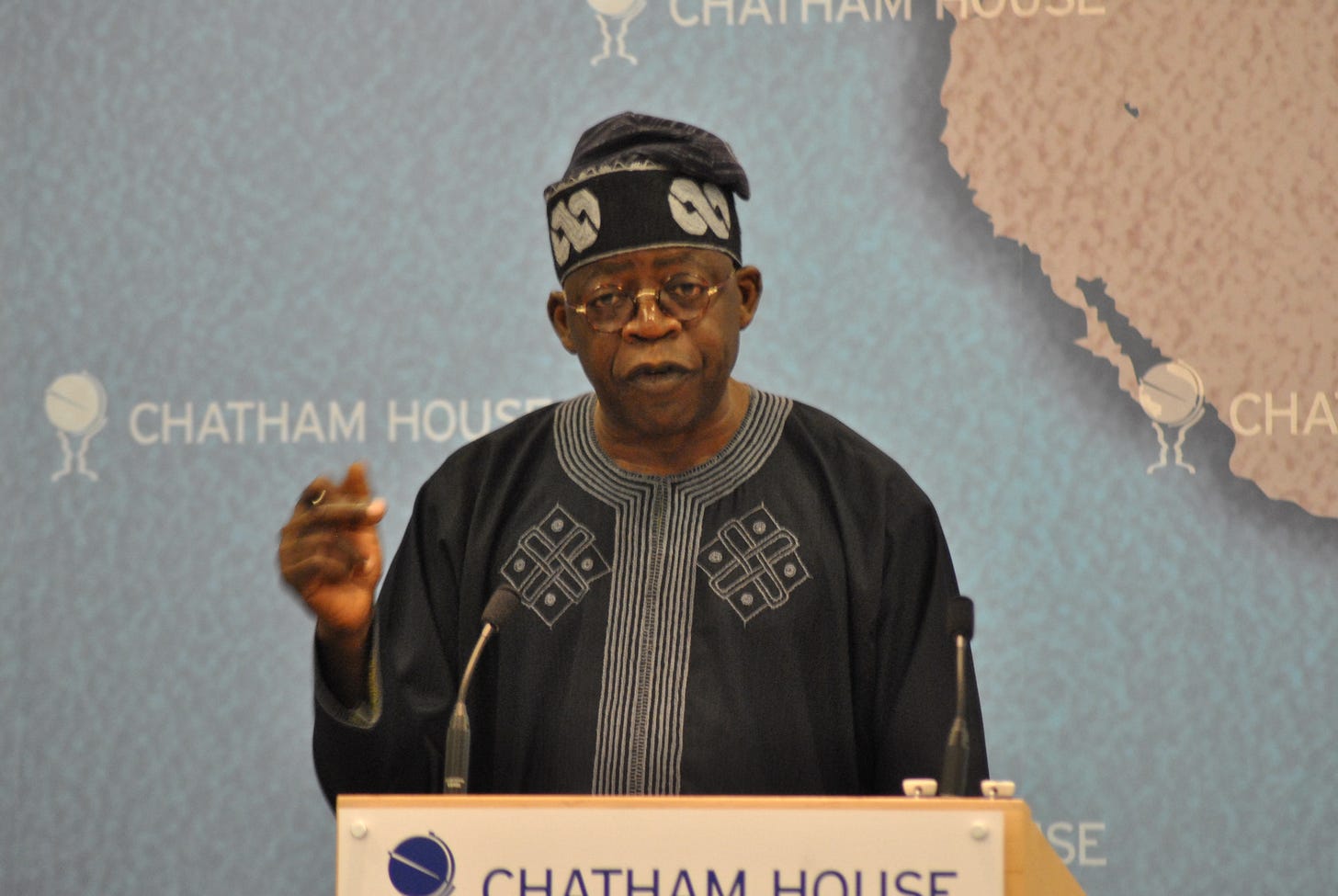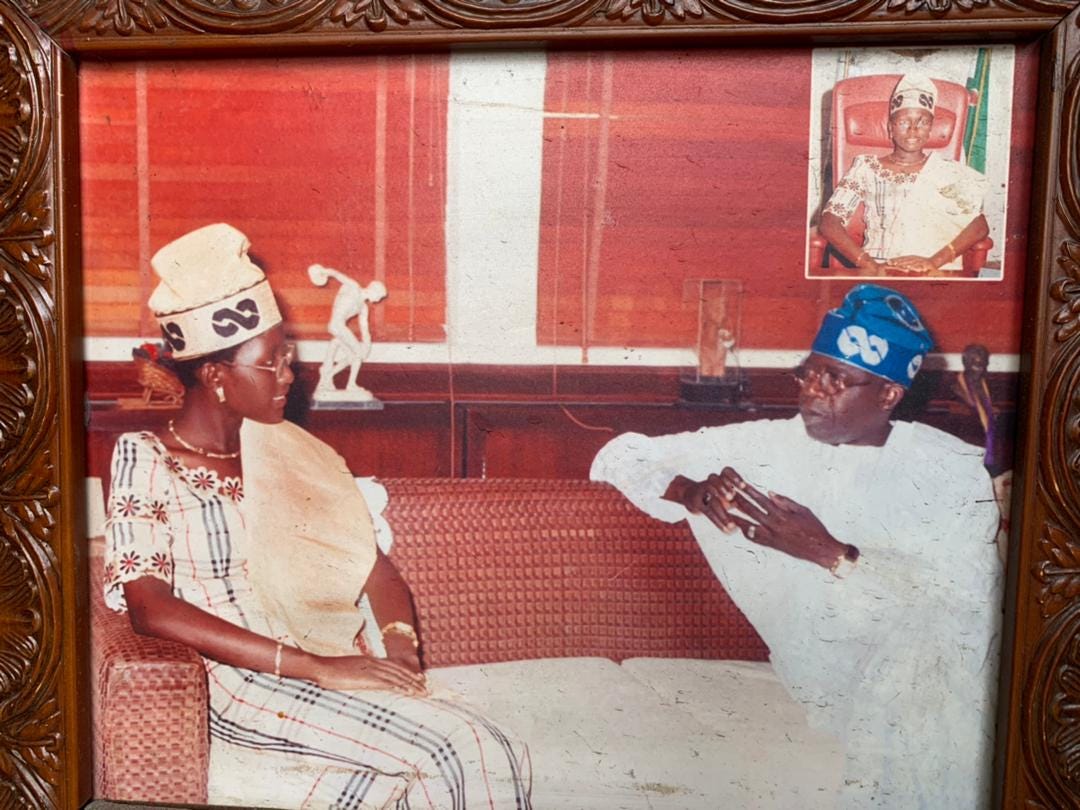🔅 Bola Tinubu: Who is Nigeria's Intriguing 'Godfather'?
Plus: Kenya's big oil repayment ask, Debt relief for Africa?, Tensions flare in Somaliland, 22 abducted in Congo, And much more... ☕
Photo of the day: Bissau, Guinea Bissau
Markets
🔻 Nigerian SE: 55,508.61 (-0.53%)
🔺 Johannesburg SE: 78,631.45 (+1.15%)
🔻 Ghana SE: 2,388.22 (-0.84%)
🔻 Nairobi SE: 125.88 (-0.08%)
🔻 US S&P 500: 3,944.95 (-0.63%)
🔺 Shanghai Composite: 3,312.35 (+1.00%)
Asia's Economies: If you're in the market for a new car, don't go to Japan - the country's factories are in reverse. While China's factory activity is soaring, Japan's manufacturing activity shrank in February at the fastest pace in over two years. The data underscored the major issues faced by businesses in the country - including a global slowdown, the soaring cost of raw materials, and calls for firms to raise wages for their workers to help ease a cost of living crisis. In contrast, China's much better-than-expected performance came after the strict coronavirus measures in the world's second-largest economy were eased late last year.
Investors Bet on Tinubu: Nigerian investors are putting their money where their mouth is: in Bola Tinubu. The president-elect has investors betting that he'll be the one to pull Africa's largest economy out of its fiscal mess. And so far, the bet's paying off: Nigerian bonds have seen some of the best gains in the emerging markets, while its equity benchmark is soaring to an eight-month high.
*Data accurate as of the close of markets across the continent
POLITICS
Bola Tinubu: Who is Nigeria's Intriguing 'Godfather'?
Bola Tinubu is a controversial figure in Nigerian politics.
Backing two terms for outgoing President Muhammadu Buhari, and picking winners for Africa's biggest city, the 'Godfather', as he is known, will now test his power as President-Elect.
At a weekend news briefing, Tinubu said that his track record should speak for him. He pointed to his time as Lagos governor, where he was met with "dead bodies on the road, a chaotic traffic system, [and] robbery daytime and nighttime.”
Sounds pretty bad. How did he fix it?
Tinubu supporters say that he is an effective administrator and picked competent technocrats.
He's also awarded lucrative contracts and plum jobs to loyalists, and has turned to so-called area boys to intimidate opponents if he doesn't get his way.
What do we know about his background?
Tinubu was born in Lagos in 1952 to a Muslim family from the Yoruba ethnic group. In the 70s, he emigrated to the U.S. to fund his studies, working as a dishwasher, taxi driver, and night guard.
He graduated from Chicago State University in 1979 with a degree in business administration.
He then worked for U.S. consultancy firms, and eventually returned to Nigeria in the 1980s to work as an auditor.
He got involved in politics in the 90s and was elected governor of Lagos when military rule ended in 1999. He served two terms.
What will his presidency look like?
Supporters say that his time as governor of Lagos improved its roads, trash collection, and other services in the chaotic city. However, many Lagosians say the city remains deeply dysfunctional.
What's more, his support for the outgoing president, Buhari, who has struggled to tackle Nigeria's major problems, has yet to instil much confidence in Tinubu.
Only time will tell how he fares as president, but one thing's for sure: the godfather's time in office will be fascinating to follow.
If you’re a regular here, hit that share button. Tell your friends and colleagues about how Baobab will get them smarter on African business, money and current affairs in less than 5 minutes a day, for free!
OTHER HEADLINES
Across the Continent
🇰🇪 Kenya's Big Ask: A Year to Pay for Oil | Kenya's feeling the squeeze—the East African nation has asked for up to a year to pay for imported oil, instead of the usual three days. The cash-strapped country has less than enough foreign exchange reserves to cover four months of imports, and with oil prices hovering around $80 a barrel, that's a lot of money. To make matters worse, Kenya's shilling has lost a fifth of its value against the dollar in the last three years, making it even harder to make payments. But the country's Energy Minister, Davis Chirchir, is undeterred, and he's hoping to negotiate six-month to one-year payment terms. Will it work?
🌍 The A.U.: Time to Talk Debt Relief | The African Union Summit in Addis Ababa a little while ago kicked off a conversation about debt relief. United Nations Secretary-General Antonio Guterres pointed out that developing African countries are often left out when global investment lenders create their financial plans, making it impossible for African countries to invest in critical areas like health, education, and gender equality. He called for a “new debt architecture that provides debt relief and restructuring to vulnerable countries, including middle-income countries.” A.U. Commission Chairperson Moussa Faki Mahamat and Ethiopian Prime Minister Abiy Ahmed were also in attendance. The theme of the A.U. assembly this year was Year of AfCFTA: Acceleration of the African Continental Free Trade Area.


🪖 Tensions Flare in Somaliland | Somaliland’s long-running quest for statehood took a violent turn recently, with at least 34 people killed in clashes around the disputed town of Lascanood. The six countries of Qatar, Somalia, Turkey, the United Arab Emirates, the United Kingdom, and the United States have all expressed concern and urged all parties to de-escalate. Local clan forces and Somaliland have been butting heads since the end of last year, with fighting erupting around the town, which is a key trade route. The U.N. says more than 185,000 people have been displaced, many of whom are reportedly sheltering under trees or in closed schools. U.N. human rights chief Volker Turk has called for a “credible and impartial investigation” into the clashes, which have caused a humanitarian crisis.
🇨🇩 22 People Abducted in Congo | Most of the Congo's insecurity currently lies in the east of the country, but 22 people were abducted from three villages in northern Congo, according to local authorities. It’s unclear who is responsible, but this incident serves as a reminder of the region’s vulnerability. Armed groups, including the infamous Lord’s Resistance Army, take advantage of the country’s porous borders and lack of security forces. As a result, citizens are left unprotected and vulnerable to low-level criminal activities.

FOOD FOR THOUGHT
Proverb of the Day
“The skin of the leopard is beautiful, but not his heart.”
— Congolese Proverb.







